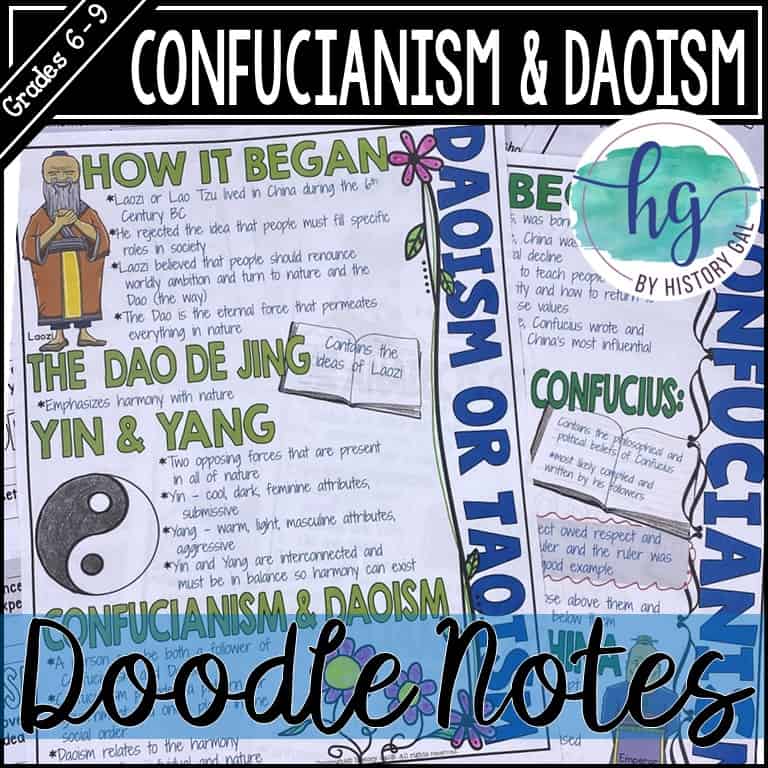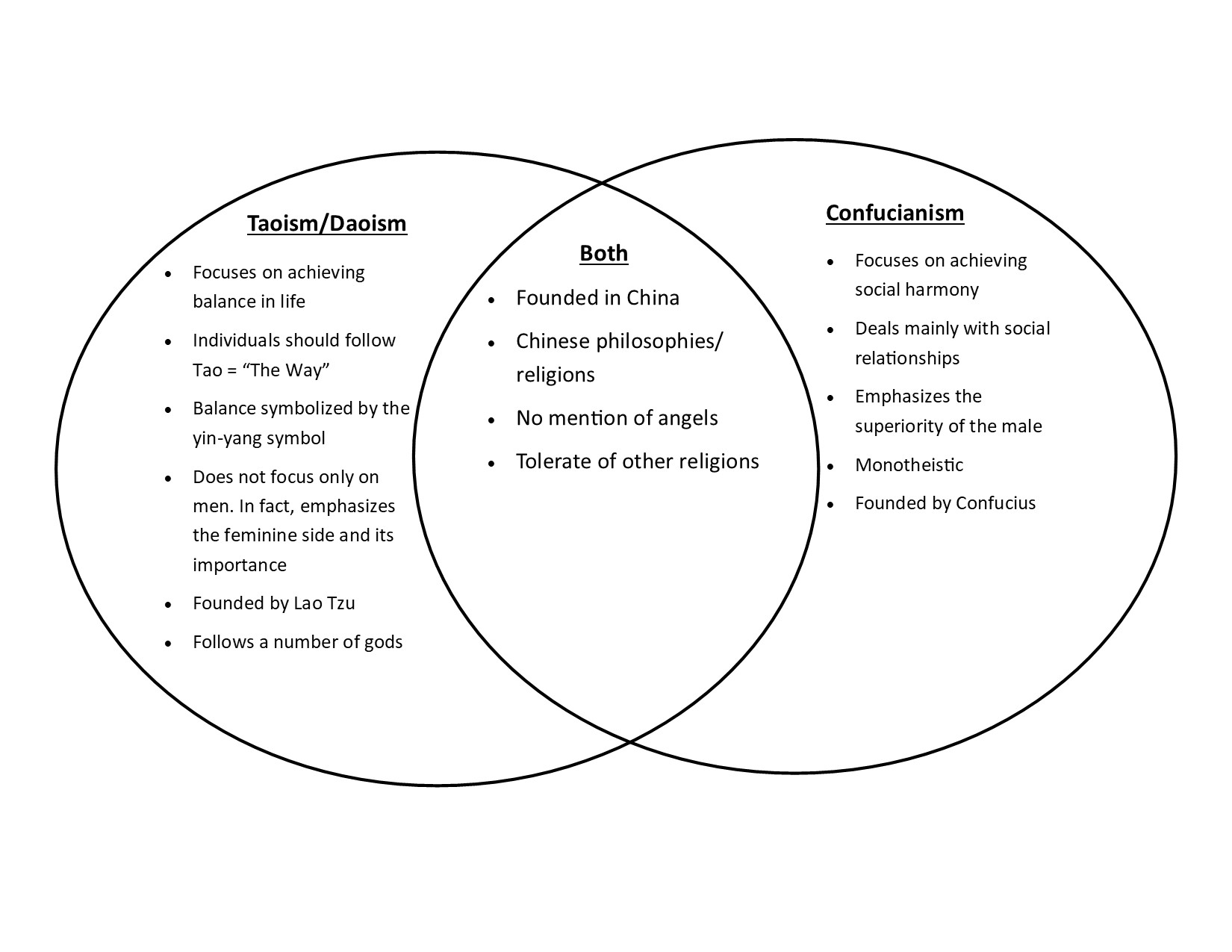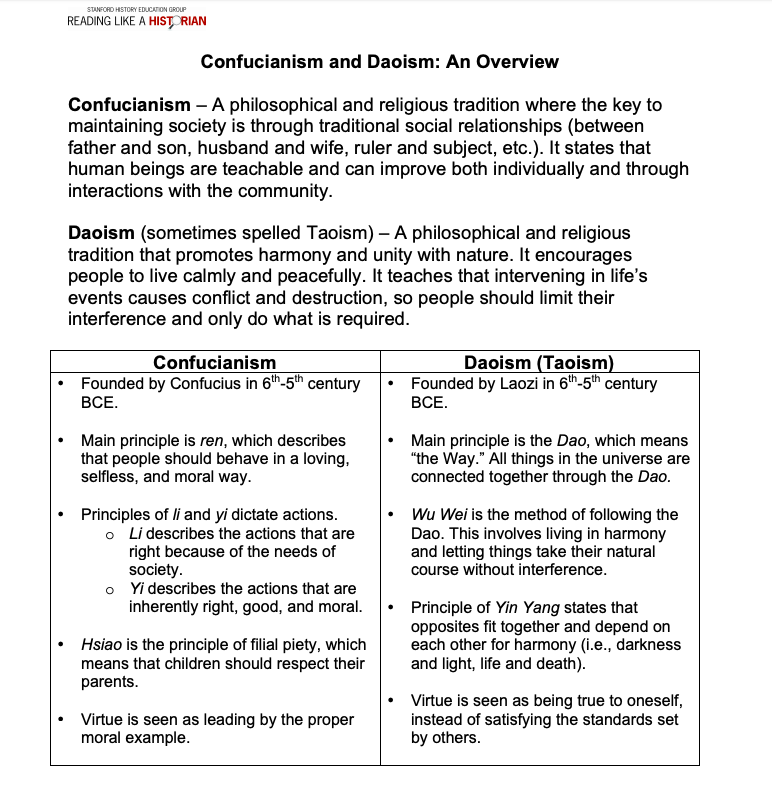Confucianism and Daoism are two of the most influential philosophical and religious traditions in East Asia. Both originated in ancient China and have had a profound impact on the cultural, social, and political development of the region. While they have many similarities, they also have significant differences that set them apart.
Confucianism is a system of ethics, morals, and social order based on the teachings of the ancient Chinese philosopher Confucius (551-479 BCE). Confucianism emphasizes the importance of virtue, the proper relationships between individuals, and the maintenance of social harmony. It values filial piety, respect for authority, and the importance of education and self-cultivation. Confucianism is often seen as a social and political philosophy rather than a religion, as it does not have a specific deity or divine authority.
Daoism, also known as Taoism, is a philosophical and religious tradition that emphasizes living in harmony with the Dao, or the natural order of the universe. The Dao is believed to be the ultimate source of all things and is seen as the ultimate reality. Daoism emphasizes the importance of simplicity, naturalness, and non-action (wuwei). It values the pursuit of spiritual enlightenment and the cultivation of personal and spiritual power through meditation, qigong, and other practices. Daoism also includes elements of mysticism and is often seen as a religion, with deities and rituals playing a significant role.
One key difference between Confucianism and Daoism is their approach to social and political order. Confucianism emphasizes the importance of social harmony and the proper roles and relationships within society. It advocates for a hierarchical social structure with the ruler at the top and the subject at the bottom, with each person fulfilling their duties and responsibilities according to their place in society. Daoism, on the other hand, emphasizes the importance of living in harmony with the natural order of the universe and the need to let go of desires and attachments. It often advocates for a more decentralized and spontaneous approach to social and political order.
Another difference between the two traditions is their approach to the self and personal development. Confucianism emphasizes the importance of self-cultivation and the development of virtues such as benevolence, righteousness, and wisdom. It advocates for the pursuit of knowledge and education as a way to improve oneself and contribute to society. Daoism, on the other hand, emphasizes the importance of letting go of the ego and desires in order to align with the Dao. It advocates for a more inward-focused approach to personal development, focusing on spiritual enlightenment and the cultivation of personal power through practices such as meditation and qigong.
Despite these differences, Confucianism and Daoism have had a significant influence on each other and have often coexisted in East Asian culture. Many East Asian cultures, including China, Korea, and Japan, have incorporated elements of both traditions into their cultural and spiritual practices. Confucianism and Daoism have also had a global impact, with their ideas and practices spreading to other parts of the world through Buddhism and other spiritual traditions.
In conclusion, Confucianism and Daoism are two influential philosophical and religious traditions that originated in ancient China. While they have many similarities, they also have significant differences in their approach to social and political order, the self, and personal development. Despite these differences, both traditions have had a profound impact on East Asian culture and have influenced each other throughout history.







